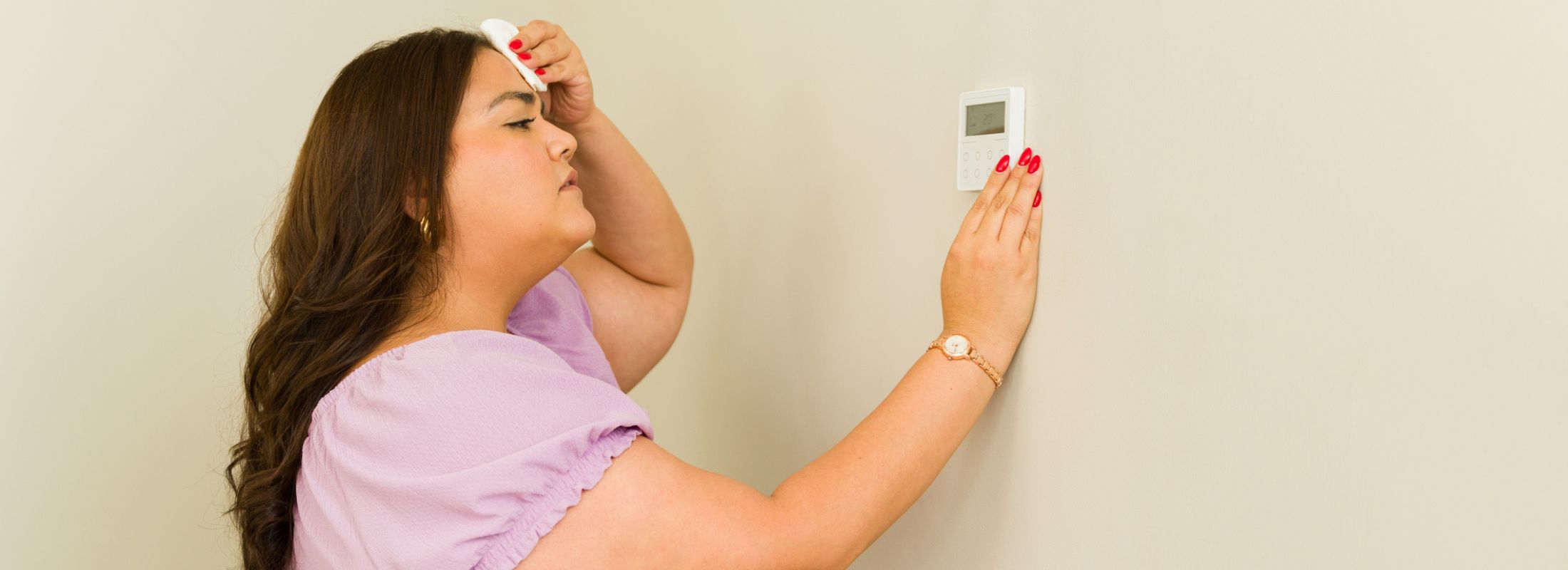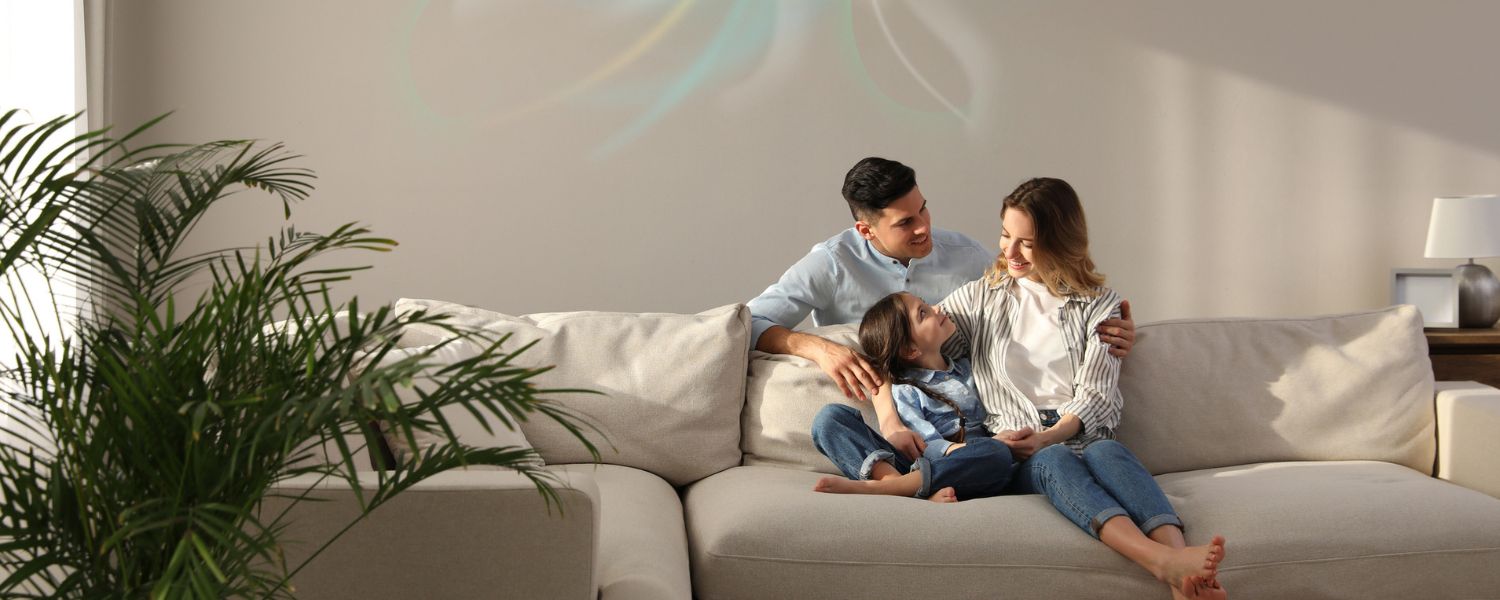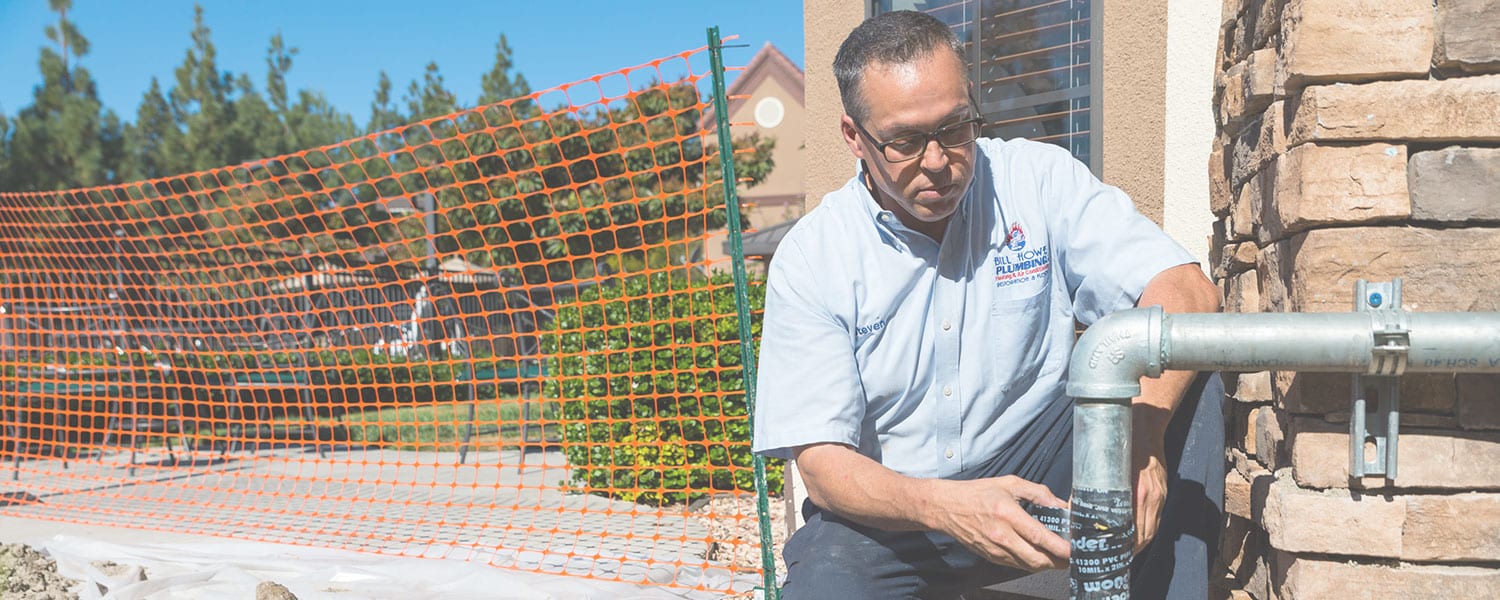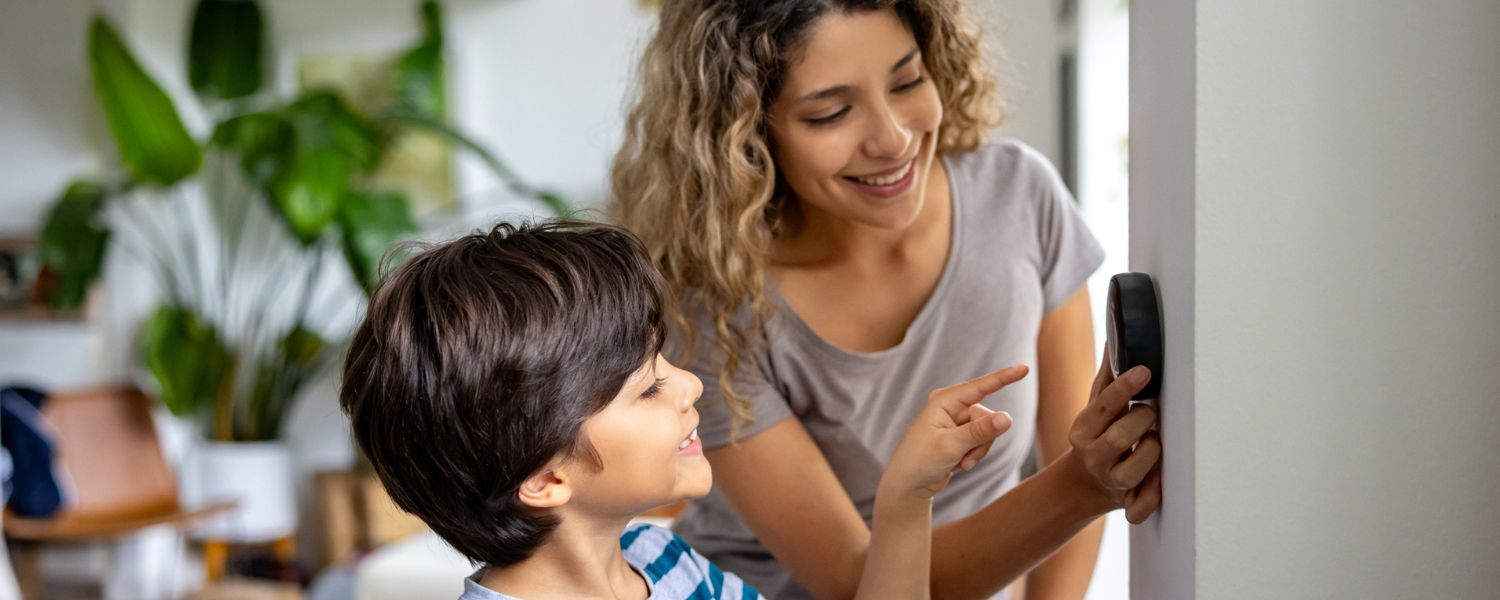When the heat soars outside, finding comfort indoors often means cranking up the AC. But, the age-old debate remains: is it better to keep turning your AC on and off, or should you leave it running?
At Bill Howe, we understand the struggle. Homeowners are on a quest to stay comfortable without breaking the bank on energy bills. We’ve compiled this comprehensive guide to help you make the right choices for your home’s cooling system.
Should I Turn My AC Off When I’m Not Home?
Some homeowners grapple with the dilemma of turning their AC on and off vs. leaving it on when they leave for work, go shopping, or enjoy a day at the beach. Suppose you’ll be away from home for a short time; generally, you can leave your air conditioner on – just set it at a higher temperature. After all, if you have pets and plants, the last thing you want is to make their lives miserable and put them in danger. But, If you’re going to be away from your home for a longer time, it’s best to turn your AC unit completely off. Plus, turning your AC on and off vs. leaving it on all day and night is better for the HVAC system because it’s less taxing.
Should you turn off your AC when on vacation? HVAC experts agree it’s better to keep your AC on when you’re on vacation, especially if you don’t plan to leave any windows open. It may be tempting to turn your AC off to save money, but doing so can damage appliances such as refrigerators. After all, if the house is too hot, the refrigerator will have to work harder to keep food cold. And if your home doesn’t have excellent insulation, you may return from vacation to a home that feels like you’ve just stepped inside an oven.
Another reason to keep your AC on while on vacation is to keep the humidity levels inside your home healthy and comfortable. After all, your air conditioner doesn’t just keep your home nice and cool — your AC removes humidity from the air in your home. The last thing you want to deal with is a home with high humidity. If your home’s humidity levels are high, it can lead to mold, warped floors, and coming home to musty odors and smells.
Turning Your AC On and Off vs. Leaving It On
Okay, but what if the temperatures are unbearable? Should you turn off your AC when not home? When the temperatures outside are extreme, leaving the AC on is okay. Of course, if you’re trying to save money and coming home to a hot and humid home doesn’t bother you, feel free to turn it off.
Thinking beyond whether it is bad to keep turning your AC on and off, there are many ways to use the system’s features to save money, keep your system running at its optimal level, and remain cool during heat waves. While many homeowners look for high-efficiency systems to replace outdated AC units, others look to their thermostat and ceiling fan for a quick solution to save on operating costs and stay cool all summer.
Does Turning Your AC On and Off Cost More?
Is it more expensive to turn your AC on and off frequently? The short answer is yes. Turning it on and off will cost more money.
So, is it better to leave your AC on all day? Well, it depends. After all, turning the AC on and off costs more initially. However, leaving your AC on all day consumes more energy and adds wear and tear to your system, which may cost you more money for repairs in the long run. That’s why regular maintenance is recommended — it’s a great way to keep your air conditioner working optimally. We’ll discuss the benefits of regular maintenance in greater detail below.
What About in Hotter Months? Is It Bad to Turn Your AC Off in the Summer?
The summer months bring on the heat. And while many of us can find some temporary relief at the beach, you’re still going to make your way back home, and the last thing you want is to come home to an uncomfortable home. We’ve already touched on several reasons why you should leave your AC on in the summer, like preventing high humidity and mold growth or adding stress to your refrigerator. But there are other reasons to leave the AC on in the summer. A hot and humid home will build up moisture, attracting insects and bugs, especially those that thrive in warm and damp environments, such as mosquitoes.
The following are some tips you can use to maximize your air conditioner during the hottest months of the year:
- Don’t mess with the thermostat: throttling the thermostat is not recommended as it is far less efficient than keeping it at a constant level (see below for more information on the perfect temperature and programmable thermostats)
- Ensure your AC has clean filters and coils: dirty filters block airflow, and dusty coils make it harder for your AC to remove the heat. You can read about the benefits of regular maintenance below.
Turn off anything that produces heat: try not to use your stove or dishwasher during the hottest part of the day. Heat-producing appliances raise the temperature in your home, making your air conditioner work harder. - Use ceiling fans: A ceiling fan can produce a nice breeze, making you feel more comfortable in your home.
- Shade the windows: Shut the window shades to keep sunlight and the heat it brings with it from getting into your home. It’s a good idea to do this at night, before bed. That way, you can cool your house down in the evening and keep it at a pleasant temperature during the day.
- The perfect temperature: Many HVAC specialists recommend keeping the thermostat at or near 78 degrees while at home. If the temperature is in the 90s and above, 78 will feel cool, and the cost to maintain that temperature is much lower. Air conditioners work hard to remove the humidity and warm air in the home with the help of an evaporator coil. When homeowners try to achieve considerably lower temperatures than the outside air, the central AC unit must work double time. The idea is to stay within about 15 degrees of the outdoor air temperature.
Of course, everyone has their own personal comfort level, and there are many ways to please the whole family without breaking the energy bank.
Maximizing AC Efficiency
Ductless Air Conditioners
Ductless air conditioning systems are particularly valuable in homes and spaces where traditional ductwork installation is impractical. While some homeowners might assume that ductless systems are as simple as plug-and-play appliances, it’s important to note that they still require professional installation due to their many components and complexities.
Ductless AC units consist of indoor air handlers that both heat and cool your living spaces, typically mounted on the walls in each desired area. These systems involve electrical work, a sleek condensing unit, and a condensate drain line to remove humidity. What makes ductless systems stand out is their ability to provide zone control. Each indoor air handler can independently regulate the temperature in its designated space.
Zone control is a game-changer, offering a smarter way to manage temperatures without the need to close off air vents throughout the entire home. With zone control, everyone can customize their comfort levels to suit their preferences.
Ductless is also ideal for larger homes for this very reason. Instead of cooling or heating the entire 3,000 square feet of a house, ductless systems allow homeowners to selectively condition only the most frequently used areas, reducing energy consumption and costs.
Moreover, all ductless systems come equipped with programmable settings, empowering homeowners to optimize efficiency in every zone by setting temperature schedules tailored to their needs.
Programmable Thermostats
Just like ductless AC systems, programmable thermostats are your secret to efficient cooling. With today’s smart technology, you can manage your home’s AC from your phone, tablet, or computer, as long as you have Wi-Fi.
Here’s why they’re great:
- If you’re away from home for long hours, whether for work, vacations, or school, a programmable thermostat is your ally. You can set it to automatically adjust the temperature when you’re not around. For instance, when you’re away for a while, you can let the thermostat set the temperature a bit higher (in the low 80s), saving energy. It can then cool your home back to your preferred temperature (around 75-78 degrees) just before you return. This prevents your AC from working extra hard and hiking up energy costs.
- If you like sleeping in cooler conditions, you can program the thermostat to lower the temperature before bedtime and raise it in the morning.
- Once you’ve set up these programs, you don’t need to think about it. Programmable thermostats offer various scheduling options for different times of the day, days of the week, and even when you’re on vacation.
In a nutshell, programmable thermostats give you control, convenience, and energy savings at your fingertips.
If you’re not sure how to set it up, our HVAC specialists are happy to help you find the best program for your needs.
Regular Maintenance
Regular maintenance plays a crucial role in ensuring the optimal functionality and efficiency of your air conditioning system. Even if you adjust the thermostat frequently, a dirty filter or neglecting seasonal maintenance can hinder efficiency and strain your system. One key element homeowners often overlook is the importance of clean filters.
In addition to changing the filter during every maintenance appointment, homeowners should also make it a habit to check and replace (or clean) their filters at least every three months. For those living in areas with high dust levels or households with pets, HVAC specialists recommend changing filters on a monthly basis. This simple practice allows air to flow freely without any obstructions, preventing the system from overworking.
By prioritizing regular maintenance, you not only enhance the efficiency of your air conditioning system but also extend its lifespan, ensuring comfort and savings in the long run.
Efficient Systems
Highly efficient and properly sized HVAC systems offer homeowners significant savings on operating costs. Manufacturers continually improve system designs, making them more efficient each year. Ductless systems stand out as an excellent choice for achieving high efficiency, particularly in spaces ideal for their installation.
By opting for an energy-efficient system, regular maintenance, and utilizing an adjustable and programmable thermostat, homeowners can enjoy considerable savings without compromising comfort. After all, the purpose of investing in air conditioning is to use it. You can comfortably cool your home every day, knowing that maintaining a consistent temperature, perhaps within a 15-degree range, renders the question of turning the air conditioner off while you’re away obsolete. Your programmable thermostat and high-efficiency system take care of this for you.
So, is it bad to keep turning your AC on and off? Is there a clear winner in turning your AC on and off vs. leaving it on debate? As you can tell, there are lots of variables determining the answers. But there’s no denying that programmable thermostats, maintenance, ductless air systems, and efficient systems are vital to maintaining a comfortable home while keeping costs down.
For a new programmable thermostat, an estimate on a new high-efficiency system, an AC tune up or general questions about how your system can work for you, call the experts at Bill Howe. Call 1-800 BILL HOWE (245-5469). Friendly and knowledgeable staff are ready to help you achieve maximum comfort. Schedule a free consultation to discuss your AC needs!




